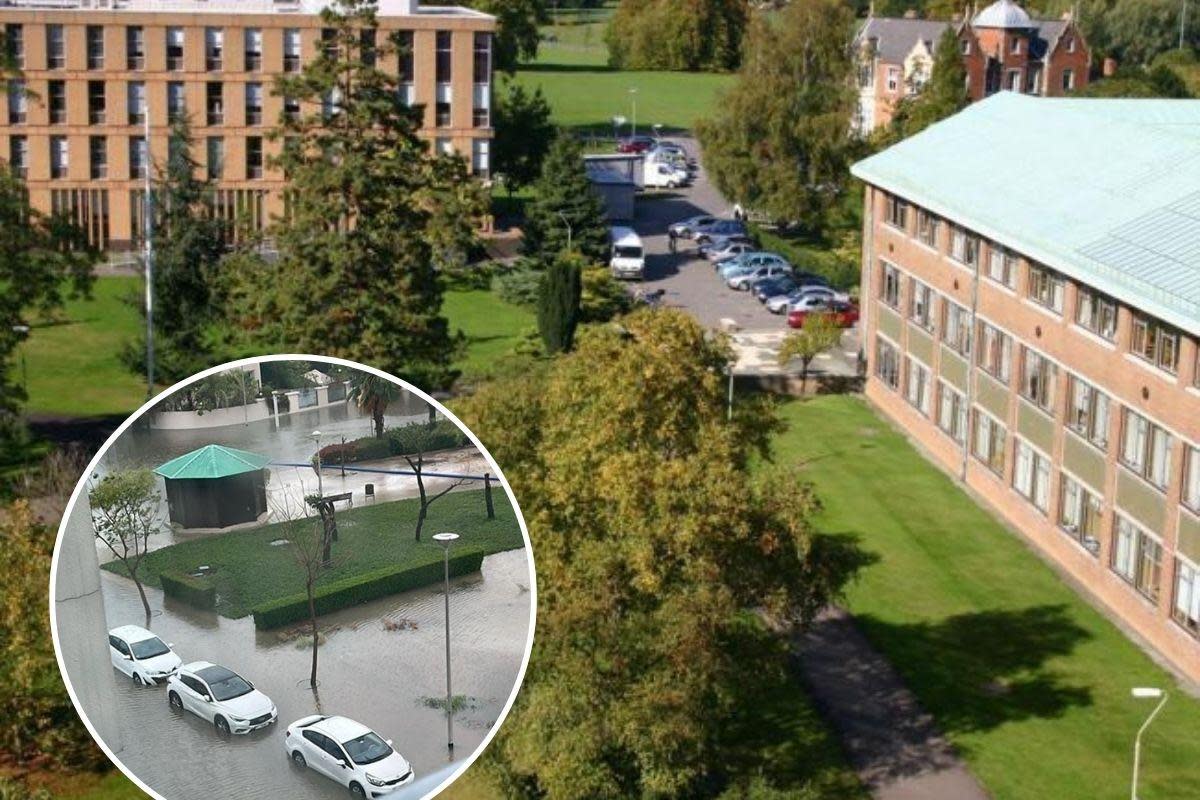University of Reading hits backs at claims it CAUSED Dubai floods

Reading University has dismissed claims that it is involved in any cloud seeding operations in UAE following an article by The Telegraph.
The national newspaper published an article on April 18 with the headline 'Reading University denies responsibility for catastrophic Dubai floods'.
University of Reading then responded to the article, contesting allegations of it 'causing flooding in Dubai' in a comical post on X (formerly Twitter)
They said: "We haven't issued a denial.
"We aren't cloud seeding in UAE."
Sorry to rain on your parade @Telegraph
1. We haven't issued a denial
2. We aren't cloud seeding in UAE
3. Our weather and climate scientists are providing evidence-based comments to explain what happened
4. Read more from them at https://t.co/i1JpOMXu9t
5. Jog on https://t.co/gV8rxHJw4I— Uni of Reading (@UniofReading) April 18, 2024
Cloud seeding has been the subject of controversy and intrigue since a Telegraph article suggested Reading University's involvement in the process.
The article said that a university expert had commented about recent flooding triggered by heavy rainfall in the UAE.
However, the university stated that the article was misinterpreted, and the expert was merely providing evidence-based comments about the weather situation, not claiming involvement in cloud seeding actions.
Professor Maarten Ambaum, a meteorologist at the University of Reading, shared insights on the unusual weather pattern.
"He said: "This was an extremely heavy rainfall event which dumped a year’s worth of rain across a wide area in a single day.
"This part of the world is characterised by long periods without rain and then irregular, heavy rainfall, but even so, this was a very rare rainfall event."
He further clarified that the intense rainfall events could have been exacerbated due to climate change.
While the UAE does implement an operational cloud seeding program to enhance rainfall in the arid region, no such operations had recently taken place in the area hit by heavy rains.
Professor Giles Harrison, Professor of Atmospheric Physics at the University, clarified the difference between cloud seeding and large-scale rainfall saying: "There is such a fundamental mismatch of scale in the processes involved that I can’t see how the rainfall and cloud seeding could be related."
Meanwhile, Professor Suzanne Gray, Professor of Meteorology, attributed the extreme weather event to something called a mesoscale convective system, which form when numerous thunderstorms combine to form large-scale high-level cloud shields, leading to heavy rainfall.
Considering the dire image of massive floods in downtown Dubai, Professor Hannah Cloke, Professor of Hydrology at the University of Reading, said: "The pictures of the floods covering downtown Dubai are quite extraordinary.
"While massive floods like this have occurred in the past, the huge scale and intensity of the rainfall that caused it are exactly what we are seeing more of in our warmer world."
Professors at the University unanimously emphasise the need for accurate and timely forecasting, as well as effective response systems, to mitigate impacts of such extreme weather events.
Despite advances in infrastructure and drainage systems, extreme rains can lead to floods, as in the recent events.
It also points to the urgency of addressing global warming to prevent exacerbation of such extreme climatic events.

 Yahoo News
Yahoo News 
